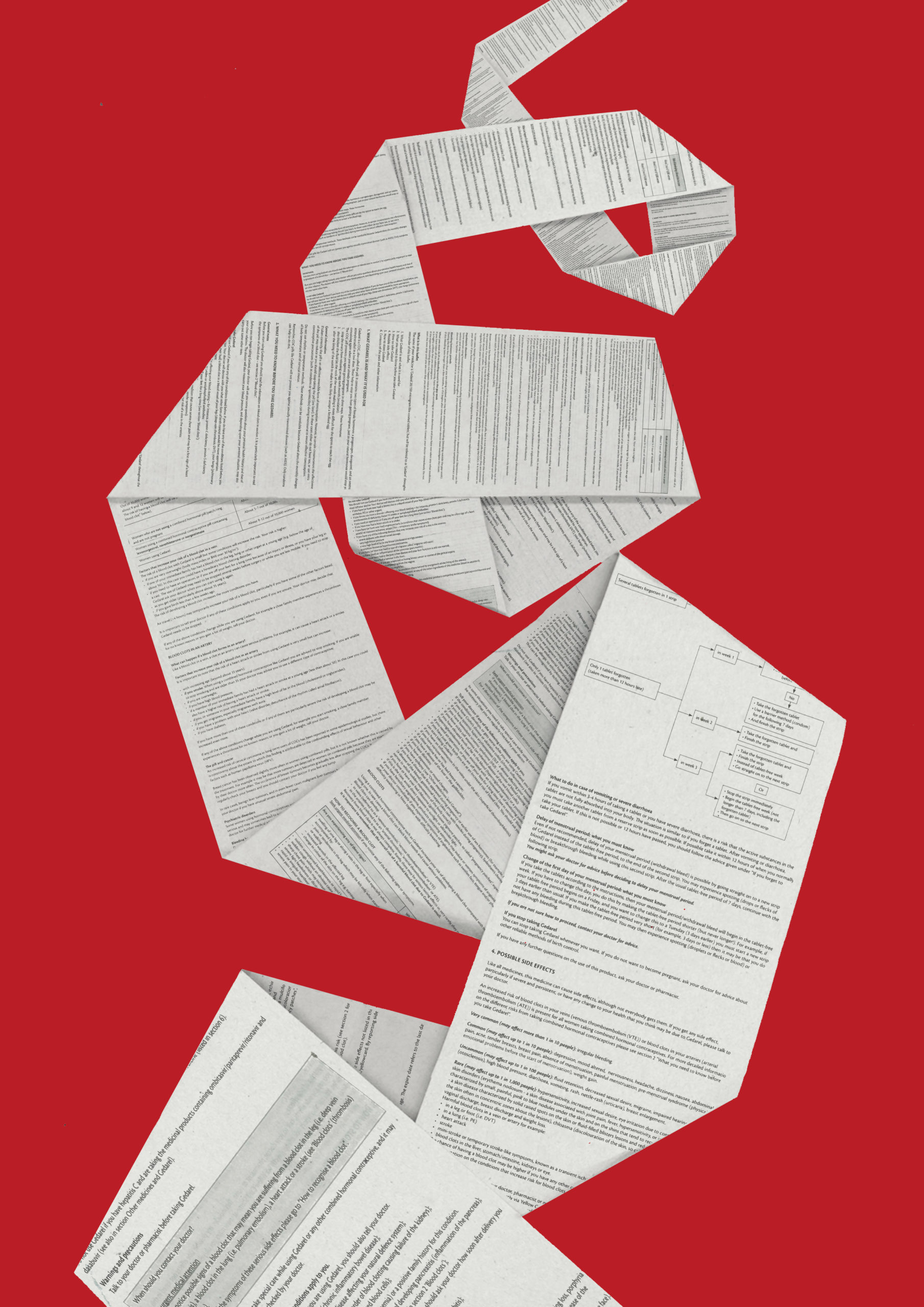Words: Maia Appleby Melamed she/her
Artwork: Sophie Aicken she/her
CW – Mental Illness
‘Life-enhancing, maybe even life-saving,’ is how India Rakusen describes her 28 episode podcast series, 28ish days later, exploring not only the biological processes but also the historical, political, and cultural backbones of menstruation. Each 13 minute episode tracks a different day of the menstrual cycle, blending personal testimonies with engaging research from experts in fields associated with menstruation.
Rakusen’s informativity and inclusivity, both in her research and in her selection of guest speakers, left me feeling refreshed and energised. After hitting pause on episode 28, what stuck with me was the overwhelming ignorance still ascribed to our understanding of periods in the UK, and world-wide. This ignorance, at its core, can be attributed to the repeated failure of education systems in not providing generations of people with the necessary information to understand what processes occur in their own bodies, and the bodies around them.
The extent of this ignorance is revealingly reflected through an international survey conducted in 2015 by the period tracking app, Clue, which found that there are around 5,000 euphemisms used to describe a period, in circulation around the world. Some of my favourites include the Danish term ‘Rødbedeskede’, meaning ‘beetroot-vagina’, or the French phrase ‘Les anglais ont débarqué dans ma culotte’, translating to ‘the British army landed in my panties’, referencing the red uniforms worn by British soldiers during the Napoleonic wars. The initial humour these phrases invoke upon reading is lost when one begins to realise that these euphemisms reinforce the shame and stigma attached to periods.
The presence of this shame is explored in day 6 of the podcast, as Rakusen speaks to Chella Quint, the UK’s leading expert on menstruation education. Quint describes how the advertising of period products as ‘sanitary’ and ‘discrete’ breeds images of grime in association with periods. These ideas benefit both the companies that sell us the products, and also the patriarchy, ascribing ideals of shame to menstruation. Whilst in recent years this industry has begun to adapt its branding (due to continued activism), Rakusen makes clear how the stigma attached to periods is linked to the more deep-rooted issue of lack of education.
A recent study conducted by Swansea University found that only 53% of secondary school teachers reported that menstrual cycle education lessons were taught in their school. 1 in 4 girls surveyed by Plan UK in 2018 said they did not know what to do when they started their periods. How, in 2022, is there still a lack of education surrounding menstruation? Rakusen skillfully demonstrates through interviews how dangerous a lack of information and research into menstrual disorders which affect so many can be. On day 17 of Rakusen’s podcast, she interviews a woman who struggles with premenstrual dysphoric disorder known as PMDD. The symptoms of this disorder, which include severe depression and increased risk of suicide, are commonly dismissed by medical professionals as ‘regular symptoms of being a woman’ due to a lack of nuanced knowledge surrounding menstruation. PMDD was only recognised by WHO as a health disorder in 2019. One of Rakusen’s interviewees, a woman who lives with PMDD describes the pain of being repeatedly misdiagnosed by GP’s, convinced she was struggling with depression. Her experience of the dismissal of her symptoms is a common experience of the 1 in 10 women globally who suffer from Endometriosis. Rakusen explores the painful and frustrating experience of living with Endometriosis in day 9 of her podcast with Lisa Lister, who described how she was ‘bleeding more days than not’. This podcast episode is titled ‘Finding Power’, an appropriate name for Lister, who upon eventual diagnosis, was able to reclaim her own body, understand and work alongside her hormones and, as a result, free herself from the life altering monthly pain which she had previously had to accept.
India Rakusen shines a light on the varying degrees to which we menstruate which, if talked about before, would have helped so many people know that they were not alone in their experiences. It is vital to recognise how lucky it is that resources such as Rakusen’s podcast are available to us whilst education systems are not changing. Even better, resources like Rakusen’s podcast should be influential to work towards change in these education systems. Recent changes in the UK, however, are attempting to reverse centuries of period stigma. In 2020, Scotland became the first country in the world to make period products free, working to end period poverty. The importance and popularity of Rakusen’s podcast also offers hope that increasing research and education into the menstrual cycle will become the global norm. Without the transparent education Rakusen provides, equality remains impossible.

